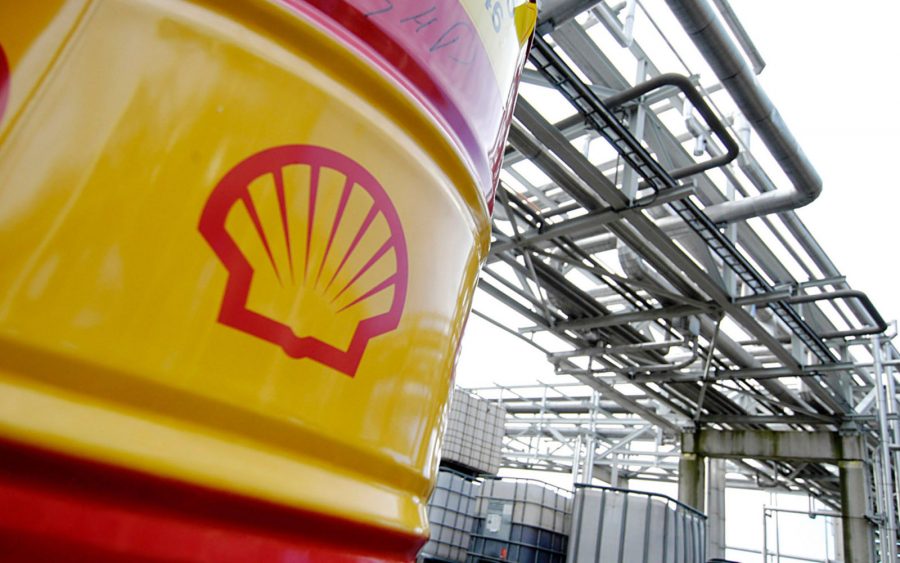Royal Dutch Shell has announced plans to relocate its headquarters to London, in the UK, as part of proposals to simplify the company’s structure with the consolidation of its dual British and Dutch structure.
The oil giant will ask shareholders to vote on shifting its tax residence from the Netherlands to the UK, which has a substantially lower corporate tax rate, and free it from a dividend tax that many investors saw as onerous.
It would also remove the “Royal Dutch” from its name and become Shell Plc just as this new move by the firm would help facilitate returns to shareholders and make it simpler to change its portfolio of assets.
It also wants to do away with its dual share structure in favor of just one class of shares to boost “the speed and flexibility” of shareholder payouts as well as bring an end to the complex structure that will make it easier for investors to value the company.
In the new arrangement, Shell’s Chief Executive, Ben van Beurden, will relocate to the UK alongside the Chief Financial Officer, Jessica Uhl, and 7 other senior employees.
Read: Shell puts up SPDC for sale, launches major divestment from Nigeria
What the UK and Dutch Governments are saying
The UK Business and Energy Secretary, Kwasi Kwarteng, who welcomed Shell’s announcement, said that this was a clear vote of confidence in the British economy and would attract investments and create jobs.
Speaking on the development, the Dutch Economic Affairs and Climate Policy Minister, Stef Blok, said that the Dutch government is pleasantly surprised by Shell’s proposal. He said the government deeply regrets that Shell wants to move its head office to the United Kingdom.
He said on Monday, “We are in a dialogue with the management of Shell over the consequences of this plan for jobs, crucial investment decisions and sustainability.”
Read: Nigerian banks don’t have enough dollars to fund acquisition of Shell assets in Nigeria – Agbaje
What Shell is saying about the proposal
Shell in a statement said that the plans will not have an impact on the legal proceedings relating to the climate ruling and others.
The company said, ‘’Shell is proud of its Anglo-Dutch heritage and will continue to be a significant employer with a major presence in the Netherlands. Its projects and technology division, global upstream and integrated gas businesses and renewable energies hub remain located in The Hague.
“Carrying the Royal designation has been a source of immense pride and honour for Shell for more than 130 years. However, the company anticipates it will no longer meet the conditions for using the designation following the proposed change.”
Read: Shell loses oil license to NNPC in court ruling as state oil giant warns against lawsuit
Shell said the simplified share structure means it would be able to “accelerate” shareholder distributions through, for example, share buybacks.
The company announced a $2 billion (£1.5 billion) share buyback in July and will distribute an additional $7 billion from the sale of its Permian Basin oilfield in the US.
“Aside from the fact that the shares they hold will no longer come with a ‘Royal’ designation, this new alignment won’t change much for investors,” said Laura Hoy, an equity analyst at Hargreaves Lansdown.
“The long-term growth story for Shell still rests heavily on the oil price. For now, buoyant oil prices are keeping the group’s cash coffers topped up. However, with the inevitable shift to more sustainable energy picking up steam, we suspect the need to invest in greener operations will keep a lid on what the group can pass on to shareholders.”
What you should know
Royal Dutch Shell is a result of the merger of Royal Dutch Petroleum Company and the UK’s Shell Transport and Trading Company in 1907.
Royal Dutch Shell’s structure is pretty complicated as the oil giant is currently registered in the UK, but its headquarters is in the Netherlands. There are two different types of shares – effectively a Dutch share and a UK share – and this affects the way payments to shareholders are taxed.
Shell has been incorporated in the UK and had a Dutch tax residence – as well as the dual share structure – since 2005.
Although the Netherlands is famously business-friendly, Prime Minister Mark Rutte has had to act on growing sentiments that companies don’t give back enough. He had to backtrack on a 2017 plan to scrap a dividend tax, throwing Shell’s head-office structure into doubt. Consumer goods maker Unilever Plc also ended its dual structure in 2020 and registered as a fully British company.
There had been reports that the Dutch government officials are struggling to find a parliamentary majority to scrap a 15% withholding tax charged on dividends, which Shell has previously described as a problem.
According to the Wall Street Journal, the decision to simplify Shell’s structure comes after Third Point, a US activist investor, recently bought a stake in the company and suggested the business should be split into two firms.
















